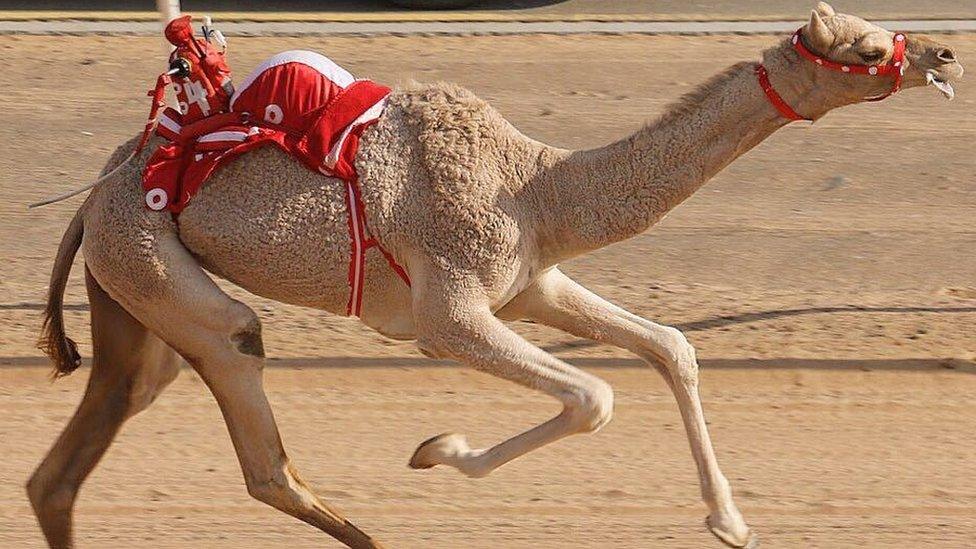Dubai: The Irish art teacher racing camels in the desert
- Published
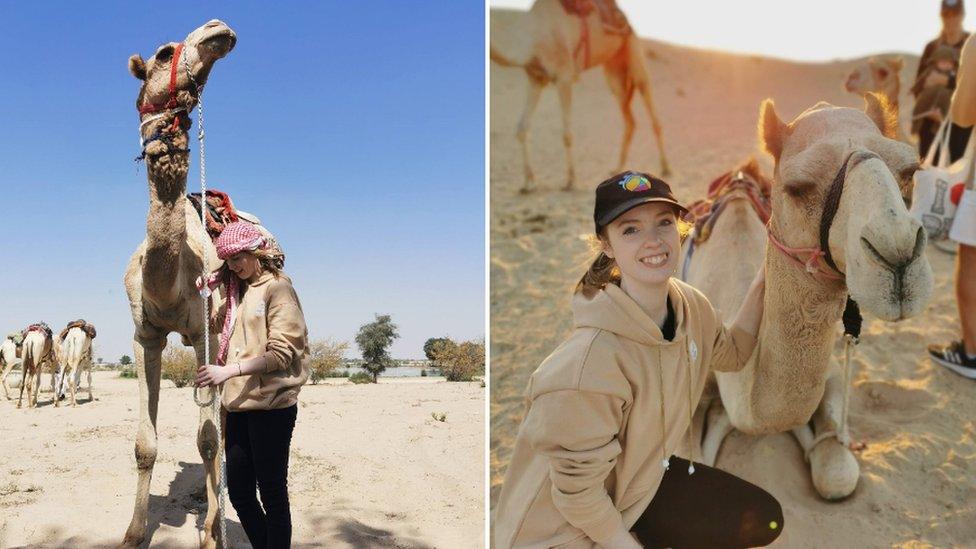
Katie Higgins swapped horses for camels when she moved to Dubai
Katie Higgins had owned and ridden horses all her life, but a move to Dubai brought about a partnership with some different four-legged friends.
Now the 29-year-old from Caherlistrane in County Galway is part of the first ever women's camel racing team in the United Arab Emirates (UAE).
The art teacher made history in the country when she competed in its first licensed female camel championship race at Al Marmoom Racetrack in October.
Since then, she and the other women have competed in four races.
She is proud to be Ireland's first female camel jockey.
'I was hooked'
Camel racing is centuries old and a longstanding part of the UAE's sporting calendar.
When Katie moved to the country, riding camels had not been part of the plan.
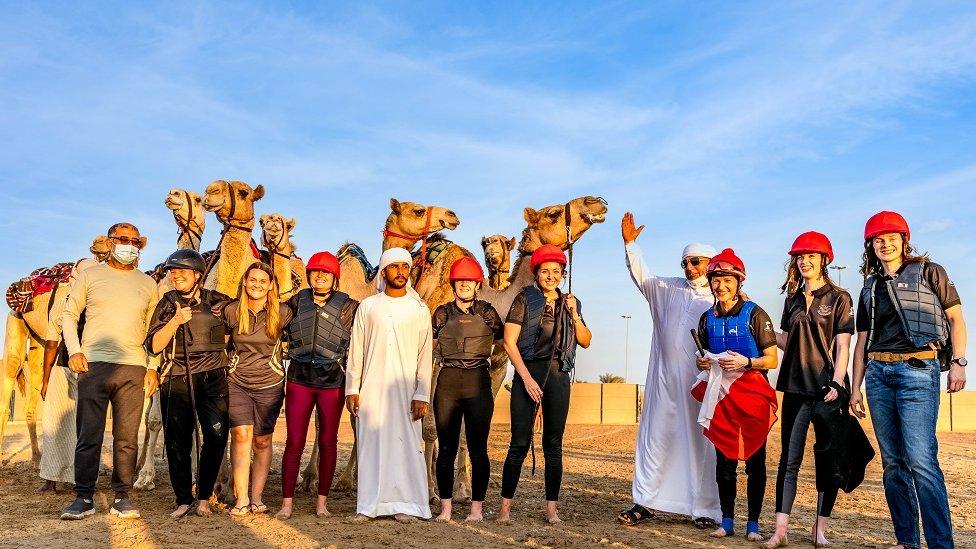
Katie has struck up friendships with her fellow jockeys and trainers
But when the Covid-19 pandemic hit, she was put on unpaid leave from her school.
"I had been here for about five years and thought: 'Maybe it's better and safer for me to go home now and call Dubai the end of the chapter'," she told BBC News NI.
She decided that before returning to Ireland, she would complete a bucket list so she could leave with no regrets.
An animal lover, she was already riding horses and volunteering in a dog rescue shelter every week.
"I wanted to learn to really ride a camel properly - not to do the tourist thing where you sit on a camel and do a quick loop," she said.
'Become one with the camel'
Katie was finding it difficult to find somewhere to learn but eventually found what would become the Arabian Desert Camel Riding Centre (ADCRC).
"Obeid and Linda, who run the centre, popped me up on a camel and I loved it. I was hooked," she said.
At the centre, she learned both how to ride as well as how to "know and understand how the camel thinks and feels".
"It's so different to horse riding. They're about two metres in height and you don't use equipment like stirrups to put your feet in or a set of reins," she said.
"The whole process is that you become one with the camel.
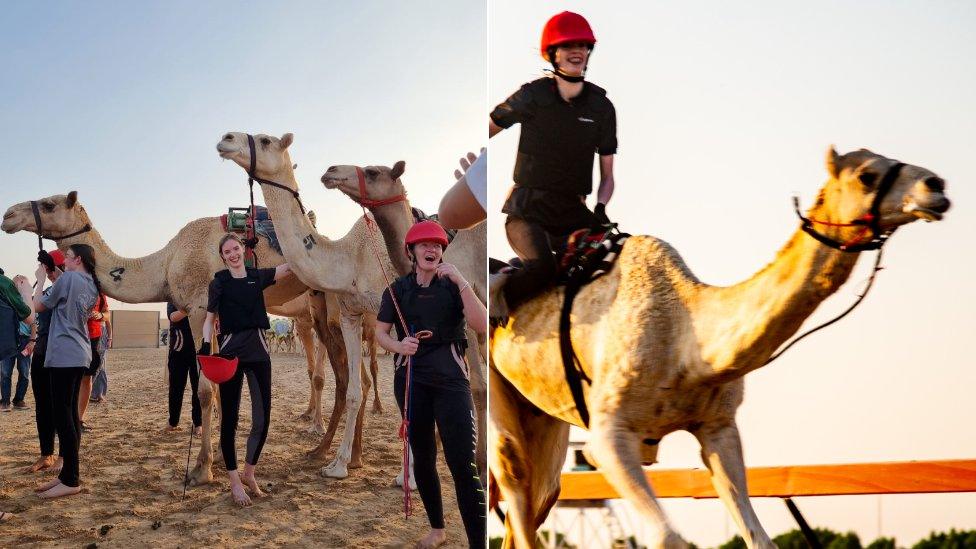
Katie was once scared of camels but has put that behind her
"We don't have a saddle or stirrups so you're purely relying on your balance and to naturally connect with the rhythm of the camel.
"Each camel has a different rhythm so it can take a bit of getting used to."
She went from being "petrified" of their size when she first arrived in the country, to falling in love with the animals.
"Fast forward to 2021 - I'm hugging my camel, I'm racing down a racetrack with women from around the world," she said.
"They're such kind and gentle animals - my phone is full of pictures of them."
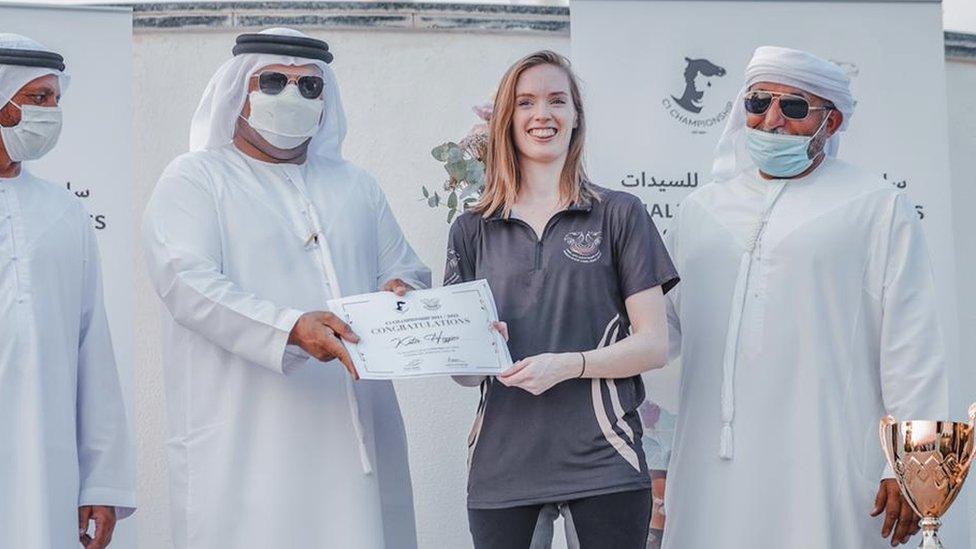
Katie got a new teaching job, allowing her to stay in Dubai, and she joined the newly-formed women's team in 2021.
"As well as learning to ride, race and care for camels the centre teaches us about the UAE culture, language and heritage," she said.
Katie is the only Irish rider, and she would like more of her countrywomen to get involved.
As with any sport involving animals, there can be criticism.
"For the Western culture it's just unusual because we're not used to seeing it - we are used to horses, but in essence they're the same thing," Katie said.
"For centuries camels have been used in the desert as a form of transport.
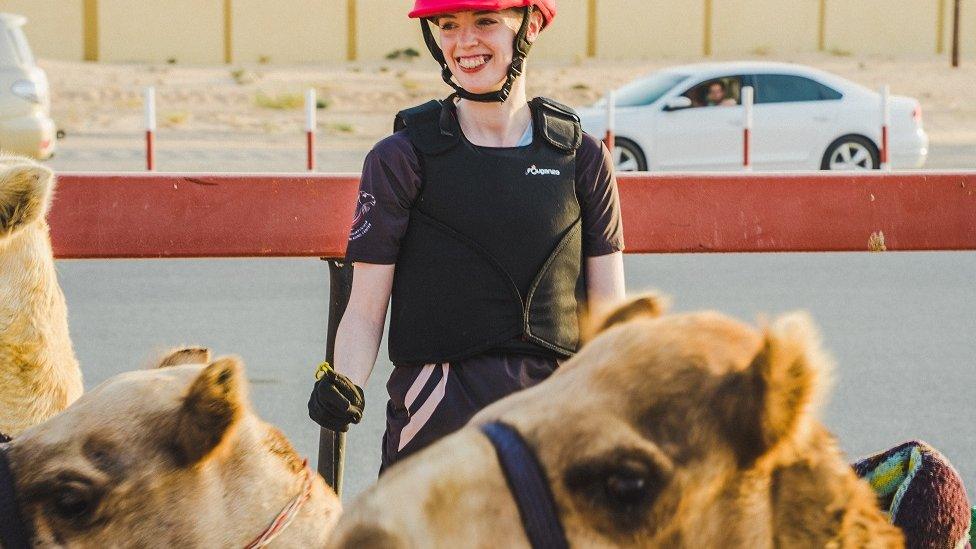
Katie got a new job which allowed her to stay in Dubai and race camels
"In fact we use less equipment with our camels than we do on horses. The camel has a head collar - but no bit.
"There's a vet on site where the camels are checked before and after and throughout the week.
"We have a weight limit for them, so not just anyone can go on, and we never put two people on a camel.
"Their health is paramount - making sure they are fit and strong enough.
"Obeid and Linda have a big focus on teaching us how to care for and respect them.
"Anyone who's interested can actually come and have a better understanding and see that the camels are well cared for and happy."
Breaking with tradition
Camel racing is traditionally a male-dominated sport.
"When we started training it was unusual for the men to see us and we got some laughs. They had their phones out recording us," said Katie.
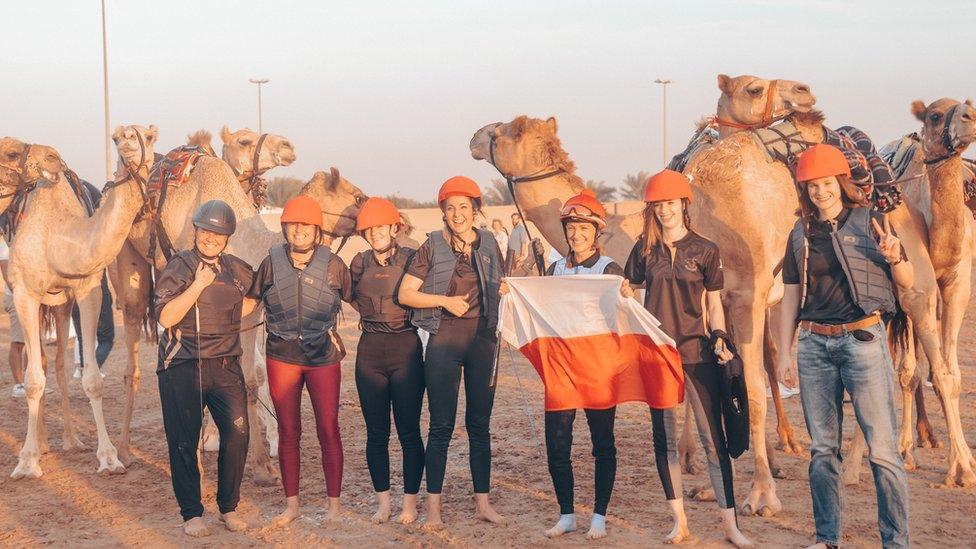
"There's a perception that these are such big muscular animals that only a man can handle."
But she said attitudes had changed.
"I went riding on Sunday on my own. I was passing all these men out training their camels - they were saying 'As-Salaam-Alaikum' - a greeting in Arabic."
When it comes to race day there is a buzz.
"Spectators drive alongside the race shouting 'Yallah!' ('Let's go!') and it's very encouraging," Katie said.
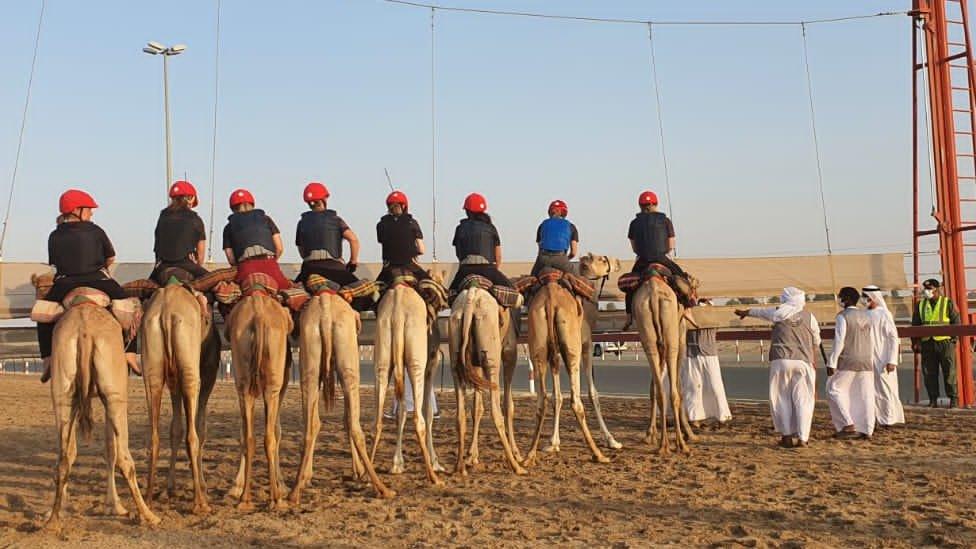
Gearing up for a race
"You go to the Galway races and hear the fast-talking commentary and you get the same thing here.
"It's all in Arabic but I can pick my name out which is fun and surreal to hear."
While it may a competition, Katie and the other women still support each other.
"Every single race we wish each other luck and safety for the race," she said.
Joining the team had opened up doors and opportunities, she added.
"The one thing I have learned form this is not to hold back - if there is something you want to do, find a way."
Related topics
- Published1 April 2016
